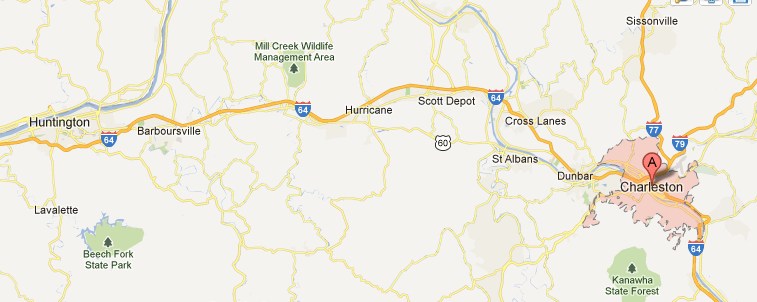 On important issues for the online community, there are some substantial differences between the Democratic and Republican parties, particularly regarding Net Neutrality.
On important issues for the online community, there are some substantial differences between the Democratic and Republican parties, particularly regarding Net Neutrality.
A review of the yas and nays in both party platforms (and past history in Congress) shows your vote can make a difference when Washington ultimately deals with privacy, network traffic, piracy, cybersecurity, and broadband expansion.
Net Neutrality – “Preserving the free and open Internet”: Prohibits providers from discriminating against different types of network traffic for profit or control
- Democrats: Yas
- Republicans: Nay
While the Democratic platform specifically states, “President Obama is strongly committed to protecting an open Internet,” one “that fosters investment, innovation, creativity, consumer choice, and free speech,” Republicans have treated Net Neutrality as anathema to the free market. Although virtually every Republican member of Congress has voted against Net Neutrality or publicly opposed the concept, some Democrats have as well, particularly those who have received significant financial contributions from the largest phone and cable companies lobbying against the policy.
Net Neutrality has not proved to be a major issue in Congress this year, with most of the recent battles taking place at the Federal Communications Commission. FCC chairman Julius Genachowski applauded a ‘third way’ for Net Neutrality, staking out a middle-of-the-road policy that pleased few outside of the FCC. It largely leaves the concept a “suggestion” for wireless carriers. Replete with loopholes and enforcement issues, even wired providers like Comcast have run around the policy for their own benefit.
Network Privacy – Full disclosure when websites track your browsing habits, and how online companies protect your private information
- Democrats: Yas, provisionally
- Republicans: Yas, provisionally
 Net privacy is a topic many consumers hear about the most when a website gets hacked and private customer information is stolen in the process. But a growing number of consumers are also concerned about what websites are doing with their information and how their web visits are being tracked for advertising purposes. Large online companies like Facebook and Google have a vested interest in keeping this space as unregulated as possible to maintain lucrative revenue earned selling demographic information to advertisers. But consumers may not want advertisers to know the websites they visit, and members of both political parties have expressed growing interest in taming who gets their hands on your private stuff. Republicans are primarily concerned about tracking by government agencies, Democrats are more concerned with for-profit use of customer data.
Net privacy is a topic many consumers hear about the most when a website gets hacked and private customer information is stolen in the process. But a growing number of consumers are also concerned about what websites are doing with their information and how their web visits are being tracked for advertising purposes. Large online companies like Facebook and Google have a vested interest in keeping this space as unregulated as possible to maintain lucrative revenue earned selling demographic information to advertisers. But consumers may not want advertisers to know the websites they visit, and members of both political parties have expressed growing interest in taming who gets their hands on your private stuff. Republicans are primarily concerned about tracking by government agencies, Democrats are more concerned with for-profit use of customer data.
The Republican platform abhors government intrusion into private liberty — primarily a reference to certain forms of surveillance. But the GOP platform is silent on enhancing privacy rights of consumers. The Obama Administration has been calling for a “Privacy Bill of Rights” that permits consumers to opt out of web tracking cookies and other tracking technology. Democrats separately want companies to do a better job disclosing and explaining how private information is being used. But Congress, under heavy lobbying to avoid the issue, never acted on the administration’s request.
Expanding Broadband: Finding New Wireless Spectrum and Improved Rural Access
- Democrats: Yas on both
- Republicans: Yas on one, vacillating on the other

While neither party fully embraces their respective platforms while governing, their stated positions often reflect political positioning when new laws are contemplated.
The Democrats tout both their National Broadband Plan and the Obama Administration’s commitment to find Internet access for 98 percent of the country and expand spectrum available to meet the growing demands for wireless data. The Democratic platform touted President Obama’s proposal to promote wireless broadband as a possible rural Internet solution.
Republicans also want more wireless spectrum to be auctioned off as soon as possible. They also believe the solution to rural broadband is additional deregulation to stimulate private investment and a private marketplace solution. But they are short on specifics about how that can happen in areas deemed too unprofitable to serve.
Democrats are generally more tolerant of public and private broadband expansion projects and stimulus funding for expanded Internet access. The Obama Administration has overhauled the Universal Service Fund to help underwrite rural broadband expansion, a notion Republicans often oppose as unnecessary taxpayer or ratepayer-financed subsidization.
Online Piracy – Stopping those illegal file transfers of copyrighted content and Chinese-manufactured counterfeit DVDs sold by street peddlers.
- Democrats: Yas
- Republicans: Yas
Both parties are pointing fingers at China for supplying an endless quantity of counterfeit merchandise sold in flea markets, online, and by street peddlers in large cities. An enormous sum of Hollywood’s lobby money, and the presence of former Sen. Chris Dodd (D-Conn.) as head of the Motion Picture Assn. of America guarantees a Washington audience receptive to the industry’s arguments. Members of Congress from both political parties representing entertainment nerve centers in California and New York have adopted piracy legislation largely as written by industry lobbyists.
But there are limits. The Obama Administration ended up opposing the overreaching Stop Online Piracy Act because it failed to balance intellectual property rights with online privacy for consumers.
The Democratic platform said the administration is “vigorously protecting U.S. intellectual property—our technology and creativity—at home and abroad through better enforcement and innovative approaches such as voluntary efforts by all parties to minimize infringement while supporting the free flow of information.”
Cybersecurity: Tech Terrorism and CyberWars
- Democrats: Yas
- Republicans: Yas
Cyberattacks from foreign entities on American computer systems and the Internet receive near-equal attention from both political parties. But the GOP still feels the current administration has not done enough, accusing the Obama Administration of insufficient vigilance that has “failed to curb malicious actions by our adversaries.” The Republican platform demands an overhaul of a 10-year-old law governing computer security and demands more collaboration between the government and the private sector on cyber-incursions.
Democrats defend their performance expressing a pledge to, “continue to take steps to deter, prevent, detect, and defend against cyber intrusions by investing in cutting-edge research and development, promoting cybersecurity awareness and digital literacy, and strengthening private-sector and international partnerships.”


 Subscribe
Subscribe








